SEAL Platoon Chiefs I have known. Uncle Mike, The Professional.
SEAL Platoon Chiefs I have known. Uncle Mike, The Professional
On the outside Mike Faketty looks like a normal, healthy 62-year-old. As a retired Navy SEAL, he maintains the active lifestyle many former Team guys do; he exercises, gets together with friends, vacations with his wife. Looking at him, it would be impossible to guess that only two years ago, doctors told him he had six months to live.
His story up to that point was a fairly common one for a retired SEAL master chief. Born and raised in San Diego, Faketty joined the Navy to become a SEAL, a choice inspired by his uncle, Frank Faketty, who was one of the original Frogmen of World War II. “I got to talking to him when I was fairly young, [he] motivated me, and I figured well, let’s give it a try,” said Faketty.
He went on to spend 30 years in the teams, serving in several campaigns, pushing candidates through BUD/S training and leading the Navy parachute team. Transitioning from active to retired life wasn’t difficult for him because of the support of the NSW community. “I have always been connected with NSW, especially when I worked at Naval Special Warfare Command,” he said. “So it was like, even though I am a civilian, I never left the community. I came back to WARCOM and I worked air and diving and couple other programs and I got to deal with guys that used to work for me in the teams are now the senior enlisted of NSW.”
But while working at WARCOM, he started feeling ill. “I was working in operations department as the air and dive program manager,” he said. “It was during one of my workouts in the gym. I started riding a bike and got real light-headed. I almost felt like I was going to pass out. So I figured, being a Team guy, that it’s just a phase, so I tried it again and almost fell on my face. I stopped, thinking I maybe was having a heart attack – that was the first thing that came to mind. I went to the locker room, got changed, [and] told the guys I have to go home.”
After waking the next day, he went to the doctor, still feeling sick. “[The doctor] says, ‘I can’t hear you breathe – go get an X-ray,’” said Faketty. “A normal X-ray looks black; mine was white.” The doctor told him fluid in his chest was causing him to have difficulty breathing. Faketty was then sent to the emergency room, where a pulmonary doctor drained approximately two liters of fluid from his lungs.
He was sent home and the fluid sent out for testing. Almost six days later, he still hadn’t heard anything back from the doctor. Finally, he got a call. “That was July 6, 2012 and that’s the day I found out that I had stage four lung cancer,” said Faketty. “The doctor gave me two to six months left to live.”
According to Faketty, the fluid they drained from his lung contained an anaplastic lymphoma kinase gene – a gene responsible for non-small-cell carcinoma, a type of lung cancer. The diagnosis came as a surprise for Faketty, because he has been a non-smoker all his life. What Faketty was told about his disease is that it is nicknamed the “non-smokers cancer,” and 90 percent of those diagnosed with this type of cancer have never been regular smokers.
His wife of 40 years, Jari, was by his side when he received the news. “She did well,” said Faketty. “She didn’t say anything in front of the doctor. In the car was where things started to sink in and for the next couple days, while we were waiting for people to call us and tell us what to do, it really hit her emotionally.” Faketty had a somewhat different reaction to his news. “I slept that night. The next day started thinking about it,” he said. “I spent all this time in the teams, survived, and all of a sudden now I get hit with this a few years after I get out. It just works your mind a whole lot. You’re thinking about, what’s going to happen if [you die], and things you should have done. With the build up of stress on both of us, dampening out spirits, I spoke with my wife and said to her ‘I love you. Let’s figure out some game plan here. We’ll always fight this thing together.’”
Faketty’s lung fluids went through more testing to verify the diagnosis and come up with a treatment plan. Because of the cancer type, he isn’t on a traditional chemotherapy regimen, instead undergoing an experimental treatment program called targeted therapy. In August 2012, Faketty began his first round of the program. The drug caused his health to decline, and he was still required to have fluid drained from his lungs on a weekly basis. After 43 weeks, doctors determined the drug was no longer effective. In June 2013, Faketty was transferred to the University of California San Diego Cancer Center and placed on a new clinical trial for different targeted therapy drug.
“ “[The new drug] has improved my quality of life and allows me to do things I have not been able to do for quite some time,” said Faketty. “This is probably the healthiest I have been in over a year and a half since I was diagnosed.” Faketty is so healthy, in fact, that he joined fellow former SEALs Ray Hollenbeck and Dave Schmeck to compete in the 2013 Superfrog Triathlon relay. “The motivation and ‘Team guy’ attitude given to me by Ray and Dave was inspirational in the completion of the swim,” said Faketty. “I continue to work out and the goal is to stay healthy and compete in 2014 Superfrog with Ray and Dave as a team again.”
Mike’s goals are seemingly simple now. He has fully retired from working, but never takes a day for granted. “I just turned 62,” he said. “My long term goal is to hit 63, because you just never know. There are people that I have befriended since I started the treatment – they’re no longer with us. So, I play it birthday to birthday, which is also anniversary to anniversary. I’ve been married to the same woman for 40 years and it’s been a lot more quality time with her then what I was able to do when I was in the teams.
My main focus is trying to stay healthy. I don’t set my clock. I do whatever I want to do.” Since joining the clinical trial at UCSD, Faketty has surpassed the original diagnosis more than three times; living 18 months past the originally predicted date. He is on the tenth round of treatment with the trial, and the cancer remains stable and is not metastasizing to any other part of his body. He attributes his success to attitude, mental toughness he learned from his time at the SEAL Teams, and the vast support network around him. “The doctors say medical treatment is only part of the solution,” says Faketty. “A positive attitude and willingness to fight is just as important.
Support from my wife of 40 years, teammates, friends [and] co-workers goes a long way towards keeping that positive attitude.” According to Faketty, this type of cancer, while rare, can happen to anyone. SEALs are not immune. But he offers advice in the form of the Team guy attitude. “Know there are options there, and when one of doctor tells you two to six months – take it with a grain of salt,” said Faketty. “A fellow retired teammate of mine, Bill McNally, who is also fighting cancers says it best ‘Never give up, don’t quit, and the only easy day was yesterday.”



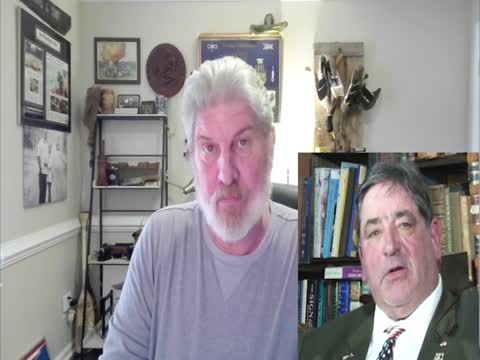

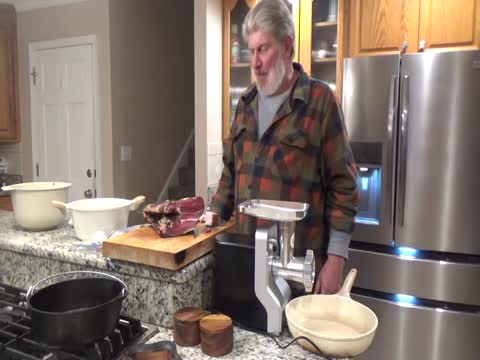
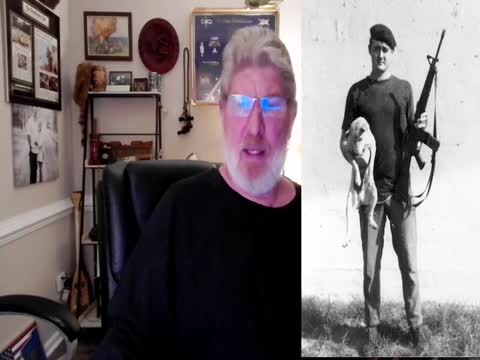
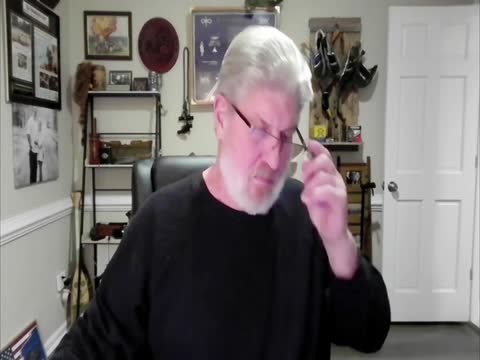


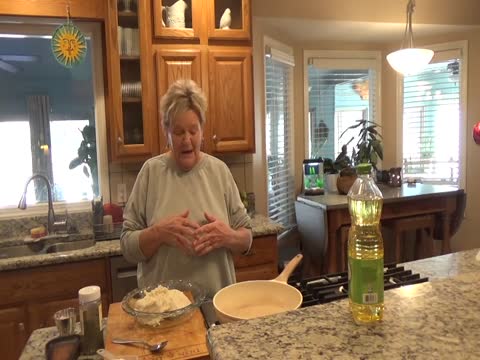
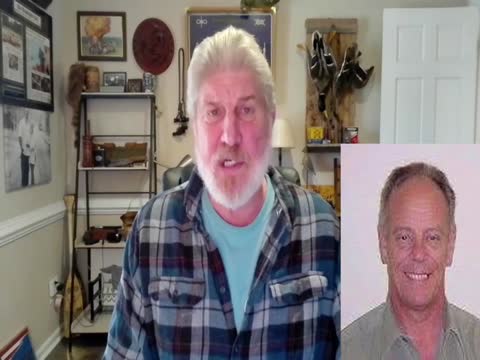

Hogan
10/03/2018
23:03:21
Great storys really enjoy this shit, thanks!
Krump
01/13/2017
20:42:29
haha 9:02... Hahaha
That's nice! right over the shoulder... I never thought of this before!
kosherham
06/23/2016
00:54:22
What's with the\\\? They aren't part of the story.
kosherham
06/23/2016
00:51:27
Except for being a Seal my friend had(has) a similar story. She went to the ER with what seemed to be an extremely bad case of shingles. Tests revealed stage 4 lung cancer with a prognosis of only months to live. She is also a lifelong non-smoker. We got together to watch a Michigan football game (yes, we are Wolverines so get over it) and even though chemotherapy had it's usual side effects her attitude was, "WTF! This f#*$ing thing really bites." That was 6 years ago and she is still looking forward to her next birthday.
Ed Draper
06/12/2016
08:20:08
Nice story Don. Thanks for sharing...
Gasserglass
06/10/2016
03:20:05
As A Life Long Maryland Resident, I Understand Completely Why You Wanna Keep VA. Your Primary Residence.....
mojo
06/09/2016
16:48:55
Oh! I think we all know what you're talking about Senior, sometimes your facial expressions explain a great deal even if the message does not pertain to us. lol!!!
TheOsprey
06/09/2016
05:20:49
I bet he inhaled a "hot" or radioactive particle at some point and eventually it caused the lung cancer. Something similar happened to the comedian Andy Kaufmann. He just up and got lung cancer but I think he was in his thirties when it happened to him. They say that if that happens it generally takes thirty or forty years to go bad.
Jordanb18
06/09/2016
00:14:04
Hate to hear about his cancer, seems like a leader we need more so today than ever before!
Douglasduke
06/08/2016
15:04:48
Great story I like Mike ..!!